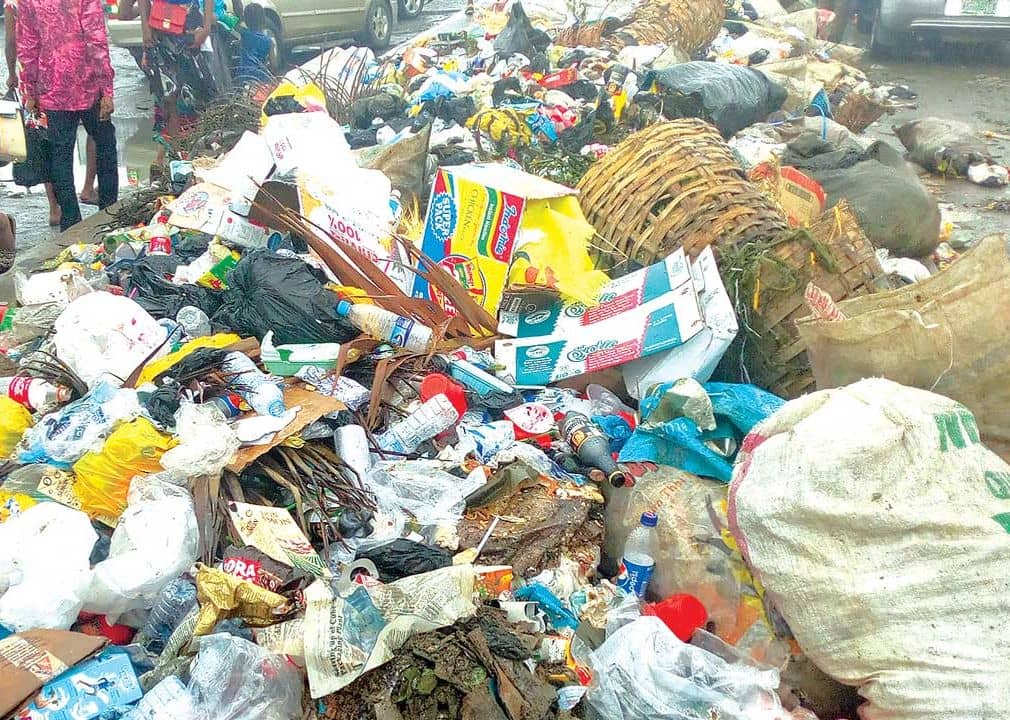Port-Harcourt, once renowned as Nigeria’s “Garden City” for its lush greenery and clean streets, is now grappling with a mounting waste crisis that residents and health professionals warn could escalate into a full-blown public health emergency.
Heaps of uncollected refuse now line major roads, markets, and neighborhoods across the city, emitting foul odours and attracting disease-carrying pests. The Nigeria Medical Association (NMA), Rivers State chapter, has expressed grave concern over the situation, describing it as a ticking time bomb.

Dr. Diamond Tamunokuro, Chairman of the NMA, warned that the unchecked accumulation of waste could lead to outbreaks of cholera, typhoid, respiratory infections, and other epidemic-prone diseases.

“Port Harcourt earned its Garden City title through its clean environment, beautiful gardens, and well-maintained streets that supported healthy living,” Dr. Tamunokuro said. “Now, the gutters are blocked, the air is polluted, and refuse is everywhere. The government must act urgently before this turns into a health disaster.”
Site visits to key locations such as Mile 1, Oil Mill Market, Diobu, and Rumuokoro reveal piles of garbage left unattended for days, creating a public nuisance and health hazard. At Mile 1 Market, food vendors say the stench is driving customers away.
“How can people buy food in this kind of environment?” lamented Mrs. Chinelo Ugochukwu, a food seller. “We are scared to even cook. This is unhealthy for everyone, especially us vendors handling food.”
Environmental experts have also criticized the state’s poor waste management infrastructure. Engr. Donald Bekee, a Port Harcourt-based environmental consultant, attributed the crisis to systemic failure and lack of accountability.
“The agencies responsible either lack the tools or the political will to address this recurring issue,” he said. “This could lead to an increase in vector-borne diseases and flooding, especially with blocked drainage systems.”
In communities like Rumueme and Borokiri, residents report frequent illnesses and worsening living conditions.
“We are at the hospital almost every week,” said Mrs. Joy Otunuga, a mother of four. “The flies are everywhere, and the smell comes into the house. We can’t even open our windows.”
Community leaders are also speaking out. Comrade Johnson Otuya, a youth leader in Diobu, decried the state’s deteriorating reputation.
“This is Port Harcourt—the city that once made Nigerians proud,” he said. “Health isn’t just about treating sickness; it’s about a clean environment. The government needs to wake up before this becomes a health catastrophe.”
As residents continue to raise the alarm, calls are growing louder for the Rivers State Waste Management Agency (RIWAMA) and the state government to act swiftly—by clearing the refuse, restoring sanitation infrastructure, and implementing preventive public health measures.
With each passing day, the “Garden City” inches closer to becoming a cautionary tale of environmental neglect.

























